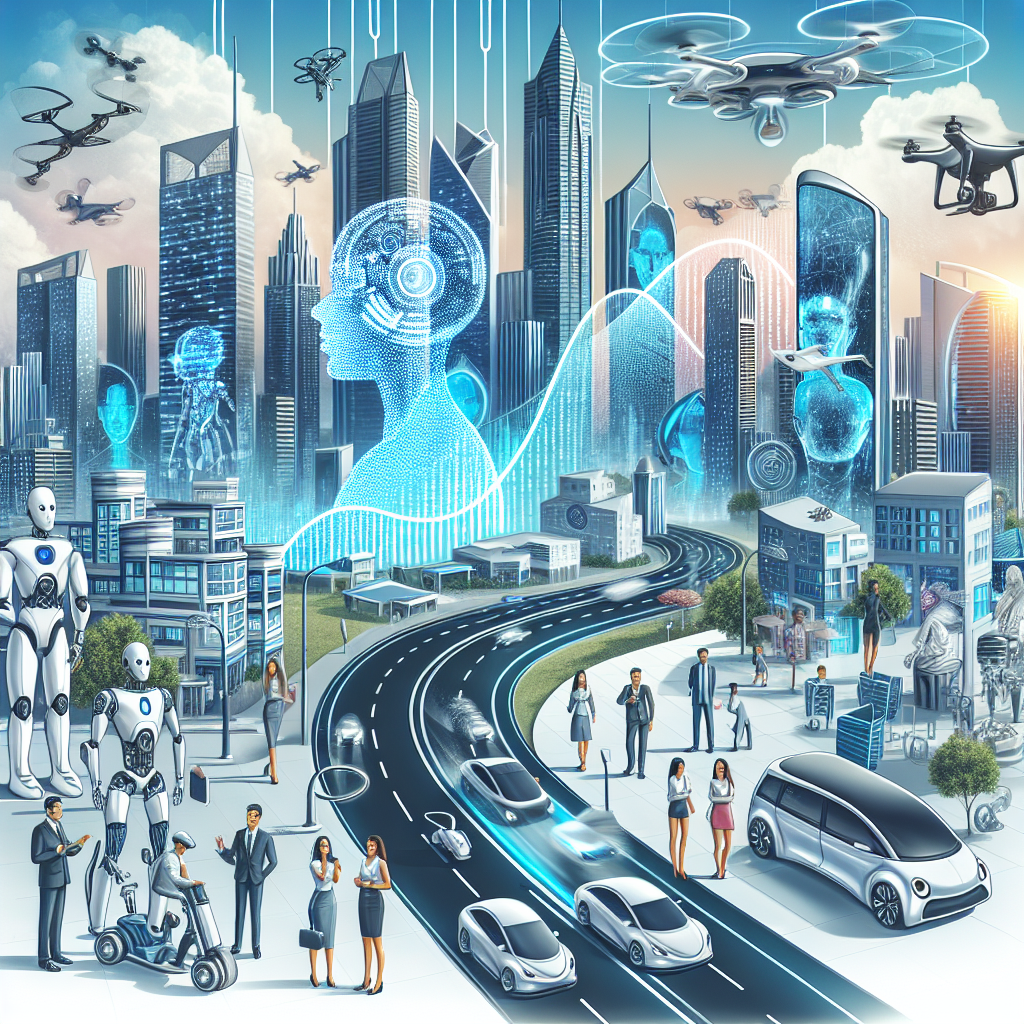Preparing for the Age of Artificial General Intelligence: How to Stay Ahead of the Curve
Artificial General Intelligence (AGI) is a term used to describe machines that possess the ability to understand and learn any intellectual task that a human being can. While we are still a long way from achieving true AGI, experts predict that it could become a reality within the next few decades. As we move closer to the age of AGI, it is important for individuals and organizations to start preparing for the potential impact it could have on society and the workforce. In this article, we will explore what AGI is, how it differs from narrow artificial intelligence, and how individuals can stay ahead of the curve in preparing for the age of AGI.
What is Artificial General Intelligence?
Artificial General Intelligence is the concept of a machine that possesses the ability to understand and learn any intellectual task that a human being can. This means that an AGI could potentially perform a wide range of tasks, from solving complex mathematical problems to writing novels. AGI is often contrasted with narrow artificial intelligence, which is designed to perform specific tasks, such as facial recognition or natural language processing.
While narrow artificial intelligence has made significant advancements in recent years, AGI remains a distant goal. Experts believe that achieving true AGI will require a breakthrough in our understanding of how the human brain works and how we can replicate its cognitive abilities in a machine. Despite the challenges, many researchers and organizations are actively working towards the goal of creating AGI.
How is AGI Different from Narrow AI?
One of the key differences between AGI and narrow AI is the ability to generalize knowledge and learn new tasks. Narrow AI systems are designed to perform specific tasks based on predefined rules and data, while AGI would have the ability to adapt and learn new tasks without explicit programming. This means that AGI could potentially outperform narrow AI systems in a wide range of tasks and domains.
Another important difference is the level of autonomy and self-awareness that AGI could possess. While current AI systems are limited to following predefined rules and instructions, AGI could have the ability to think and make decisions independently. This raises important ethical and societal questions about how we should design and regulate AGI systems to ensure they align with human values and priorities.
Preparing for the Age of AGI
As we move closer to the age of AGI, individuals and organizations need to start thinking about how they can prepare for the potential impact it could have on society and the workforce. Here are some key strategies to stay ahead of the curve in preparing for the age of AGI:
1. Invest in Education and Skills Development: As AGI technology advances, the demand for skilled workers in fields such as machine learning, data science, and robotics is likely to increase. Individuals should consider investing in education and skills development to stay competitive in the job market and take advantage of new opportunities in the age of AGI.
2. Embrace Lifelong Learning: The rapid pace of technological change means that skills and knowledge can quickly become outdated. To stay ahead of the curve, individuals should embrace lifelong learning and continuously update their skills and knowledge to keep pace with the latest developments in AGI technology.
3. Foster Creativity and Critical Thinking: While AGI systems have the potential to outperform humans in many intellectual tasks, there are certain skills that are uniquely human, such as creativity and critical thinking. Individuals should focus on developing these skills to stay relevant in a world dominated by AGI.
4. Stay Informed and Engage with the AGI Community: Keeping abreast of the latest developments in AGI technology is essential for individuals and organizations looking to stay ahead of the curve. Engaging with the AGI community through conferences, workshops, and online forums can provide valuable insights and opportunities for collaboration.
5. Consider the Ethical and Societal Implications of AGI: As AGI technology advances, it is important to consider the ethical and societal implications of its deployment. Individuals and organizations should engage in discussions about how AGI should be regulated and governed to ensure it aligns with human values and priorities.
Frequently Asked Questions
Q: When will AGI become a reality?
A: Experts predict that AGI could become a reality within the next few decades, although the timeline is highly uncertain and depends on breakthroughs in our understanding of human cognition and AI technology.
Q: Will AGI pose a threat to jobs and the workforce?
A: AGI has the potential to automate a wide range of tasks and jobs, leading to significant disruptions in the workforce. However, it could also create new opportunities and industries that require human creativity and critical thinking.
Q: How can individuals prepare for the age of AGI?
A: Individuals can prepare for the age of AGI by investing in education and skills development, embracing lifelong learning, fostering creativity and critical thinking, staying informed and engaging with the AGI community, and considering the ethical and societal implications of AGI.
In conclusion, the age of Artificial General Intelligence is approaching, and individuals and organizations need to start preparing for the potential impact it could have on society and the workforce. By investing in education and skills development, embracing lifelong learning, fostering creativity and critical thinking, staying informed and engaging with the AGI community, and considering the ethical and societal implications of AGI, individuals can stay ahead of the curve and thrive in a world dominated by AGI technology.

